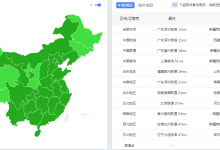高防服务器和高硬防服务器有什么区别?
随着互联网的不断发展和普及,网络安全问题也成为众多企业和个人的关注焦点。特别在当前生活和工作中,网络攻击现象愈演愈烈,为打击这种现象诞生了高防和高硬防服务器,两者似乎有些相似,但实际上存在一些差异,下面分别从定义、功能、性能和价格等方面进行比较。
定义
高防服务器,是一类专门针对各种DDoS攻击技术的攻击进行了防御和保护的服务器。一般通过大流量转发、智能分析和清洗等功能,有效减缓DDoS攻击的影响,确保网络安全可靠。
High hardening servers, 可以使用更高品质的硬件组件来提高服务器的耐用性,同时可以利用高级防火墙和ssl证书提高安全性双重保护,保证数据的安全性,是一种高性能强加固的服务器。
功能
高防服务器,通过防火墙、IDS、IPS、WAF、CDN等多种网络安全技术,对各种攻击进行防御,有效降低了服务器遭受DDoS攻击的概率,保护网络安全。
High hardening servers 更加注重数据中心的安全性和稳定性,采用更加严格的控制标准,防止不必要的数据泄露和丢失,提高安全性能和数据的防御能力。
性能
高防服务器在防御DDoS攻击时的性能非常好,可以实现秒级别的攻击防御,支持大带宽防护,对于弥补业务高峰时的增强网络性能,也十分有效。
High hardening servers不仅能够实现业务高速交换,还可以是兼容性更强,能够更好地支持复杂应用程序的依赖性,从而能够达到更高的性能和资源分配速度。
价格
高防服务器和高硬防服务器的价格都比一般服务器更贵,高防服务器一般采用的是流量计费和攻击次数计费,高硬防服务器则通常根据所选硬件类型、存储空间、CPU、内存等硬件配置来计费。
需要注意的是,高防服务器和高硬防服务器的价格是根据所选服务项目来定的,所以价格方面要仔细比较。
Differences between high defense servers and high hardness servers?
With the continuous development and popularization of the Internet, network security issues have become the focus of attention of many enterprises and individuals. Especially in the current life and work, network attacks are becoming increasingly rampant, and high defense and high hardness servers have emerged to combat this phenomenon. Although the two seem similar, there are some differences. The following compares from the aspects of definition, function, performance, and price.
Definition
A high defense server is a type of server that is specifically designed to defend against and protect against various DDoS attack techniques. Generally, through functions such as large traffic forwarding, intelligent ****ysis, and cleaning, the impact of DDoS attacks is effectively alleviated to ensure network security and reliability.
High hardness servers use higher quality hardware components to improve server durability and can use advanced firewalls and SSL certificates to improve security and double protection to ensure data security. It is a high-performance and strong server.
Function
High defense servers defend against various attacks through multiple network security technologies such as firewalls, IDS, IPS, WAF, and CDN, effectively reducing the probability that servers will suffer from DDoS attacks and protecting network security.
High hardness servers pay more attention to the security and stability of data centers, use more strict control standards to prevent unnecessary data leaks and losses, improve security performance and defensive capabilities of data.
Performance
The performance of high defense servers in defending against DDoS attacks is very good. It can achieve second-level attack defense and support large bandwidth protection, which is also effective for enhancing network performance during business high peaks.
High hardness servers not only achieve high-speed business exchange but also have better compatibility and can better support the dependency of complex applications, thereby achieving higher performance and resource allocation speed.
Price
The prices of high defense servers and high hardness servers are more expensive than general servers. High defense servers generally use traffic billing and attack count billing, while high-strength servers are usually billed based on selected hardware types, storage space, CPU, memory, and other hardware configurations.
It should be noted that the prices of high defense servers and high hardness servers are determined based on the selected service items, so the price comparison should be carefully compared.

 国外主机测评 - 国外VPS,国外服务器,国外云服务器,测评及优惠码
国外主机测评 - 国外VPS,国外服务器,国外云服务器,测评及优惠码














